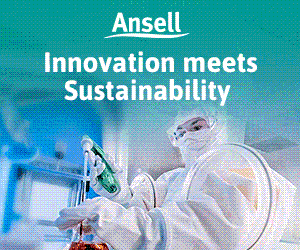A recent study carried out at an IVF Lab in the US has shown that Steril-Aire’s UVC emitters used in HVAC systems can play a critical role in improving clinical outcomes.
A seven-and-a-half-year study conducted in the in vitro fertilisation cleanroom laboratory of the Lehigh Valley Hospital and Health Network in the US found that the use of ultraviolet C or “UVC” lights installed in the HVAC system had a clinically significant impact on clinical pregnancy rates.
Presenting the findings at the annual meeting of the American Society for Reproductive Medicine (ASRM), Dr Kathryn Worrilow reported a significant increase in the rates of + beta and clinical pregnancy rates following the change-out (replacement) of 10 of the 13 systems with Steril-Aire UVC Emitters over the test period.
Clinical success in an IVF lab is critically dependent upon the quality of the ambient air, which is directly dependent in turn upon the heating and ventilation (HVAC) system.
The study led by Worrilow tracked three key components in the HVAC system – particulate filters, gas phase filters and UVC lights – along with the timing of their replacement, to determine whether these individual components affected markers of preimplantation embryogenesis and clinical pregnancy rates (CPR).
According to the findings: “There were no statistically significant differences… associated with the replacement of the particulate or gas phase filters in Testing Quarters 1-48. In contrast, immediately following 10 of the 13 UVC Emitter change-outs, the + beta hCG and clinical pregnancy rates increased 17.8% and 18.2% respectively.”
The study found that UVC energy will destroy 90 – 99% of airborne microbial contaminants. By targeting the DNA and RNA of micro-organisms, UVC degrades and abates the proliferation of airborne and surface embryotoxic organics.
Of equal significance to the developing embryo is the suggested impact of UVC irradiation on the degradation of VOCs. Studies have demonstrated that VOC levels as low as 2.2 ppb can be embryotoxic to the embryo cultured in vitro.
The authors of the study conclude that although the use of UVC light represents a departure from the standard HVAC design used in many IVF laboratories, the results suggest that the use of UVC germicidal technology in the HVAC system serving the IVF laboratory may play a critical role in providing optimal ambient air, leading to improved clinical outcomes.
The current study demonstrated that a clinically significant relationship existed between the replacement of the UVC emitters and the associated clinical pregnancy rates.
The potential benefits of UVC emitters are far-reaching: not only for their potential to improve clinical pregnancy rates in IVF clinics, but also for enhancing infection control in hospitals and healthcare environments, and for maintaining better ambient air in medical and pharmaceutical manufacturing cleanrooms.
The study also confirms the importance of adequate UVC output and replacement frequency in achieving desired results.
The study used high-output UVC lamps, supplied by Steril-Aire, of Burbank in California, with a replacement schedule of six to nine months. In the three of 13 UVC replacement test quarters that did not result in improved clinical pregnancy rates, outside factors may have played a role in the outcomes. As long as the lamps were functioning properly and were changed on schedule, results were consistently positive.
The message to anyone using UVC is that it is critical to select a device with adequate output and to replace the device consistently at required intervals to maintain that output. Otherwise, germicidal effectiveness will be diminished.
Contact
Steril-Aire, Inc
2840 N. Lima St.
Burbank
CA 91504
USA
T +1 818 565 1128
UK distributor:
E-co
Suite 24, The Lodge
Links Rd
Worthing BN14 9QY
UK
T +44 20 7193 1630




